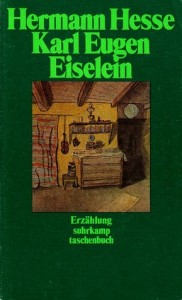Meinungsfreiheit, wie sie sich der kleine Moritz von der “Welt” vorstellt:
Uwe Tellkamp und sein Freund Kubitschek dürfen ihre angeblich verbotenen oder “geduldeten” Meinungen – denn Tatsachen hat Tellkamp in seinen weinerlichen und vor Selbstmitleid triefenden Ausführungen ja keine vorgebracht; die perfiden “95%” sind eine bekannte PEGIDA-Lüge wie so manches andere auch, was er auf der Bühne zum besten gibt; seine Ausführungen bei der berüchtigten Veranstaltung in Dresden sind von schwer erträglicher Gemeinheit, Dummheit und Denkfaulheit – in allen deutschen Medien flächendeckend und unzensiert verbreiten, behaupten aber trotzdem wacker und unter johlendem Beifall ihrer Gemeinde, wie marginalisiert sie als arme Opfer einer linken Verschwörung mit der Kanzlerin an der Spitze sind.
Der Suhrkamp-Verlag aber hat selbstredend das Maul zu halten, was denn sonst. Wenn ein Suhrkamp-Mitarbeiter twittert, hat er das vorher mit der Reichsschrifttumskammer im Hause Kubitschek/Tellkamp abzustimmen. Meinungsfreiheit gilt schliesslich nur für die, die Tellkamp und Kubitschek gut finden. Menschen, die vor Fassbomben, Folter und Verstümmelung fliehen, sind natürlich bloss Sozialschmarotzer und wer das auch nur bestreitet oder in Zweifel zieht, begeht einen Anschlag auf die Meinungsfreiheit der Geistesheroen von AfD und PEGIDA. –
Dass der kleine Moritz von der “Welt” dann auch noch sowohl den Grund für die öffentliche Empörung über die seinerzeitigen Aussagen der Schriftstellerin Lewitscharoff zur Reproduktionsmedizin verfälscht und auch den Inhalt des Suhrkamp-Tweets zur Dresdner Veranstaltung manipulativ und sinnentfremdend darstellt, entspricht dann logischerweise allerdings voll und ganz seinem journalistischen Niveau.
Was für ein erbärmliches Pack da aus seinen Löchern gekrochen kommt!
© Thomas Hübner and mytwostotinki.com, 2014-8. Unauthorized use and/or duplication of this material without expressed and written permission from this blog’s author and/or owner is strictly prohibited. Excerpts and links may be used, provided that full and clear credit is given to Thomas Hübner and mytwostotinki.com with appropriate and specific direction to the original content.




 Facebook
Facebook RSS
RSS Twitter
Twitter